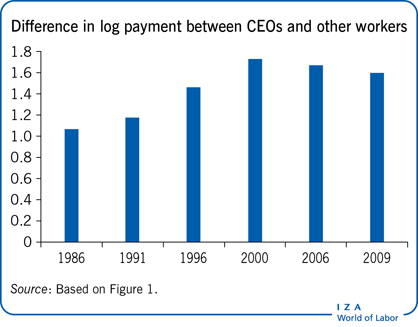Elevator pitch
Deregulation and managerial compensation are two important topics on the political and academic agenda. The former has been a significant policy recommendation in light of the negative effects associated with overly restrictive regulation on markets and the economy. The latter relates to the sharp increase in top executives’ pay and the nature of the link between pay and performance. To the extent that product-market competition can affect the incentive schemes offered by firms to their executives, the analysis of the effects of competition on the structure of compensation can be informative for policy purposes.

Key findings
Pros
Regulatory changes aimed at easing the process of starting up a business are likely to foster output growth and employment at no additional expense to the public.
To motivate and elicit effort from their managers, firms design employment contracts that relate their pay to performance; executives’ compensation schemes are also related to the levels of product-market competition.
Policies aimed at increasing competition in markets may help reduce inefficiencies associated with poor management prevalent in less competitive industries.
Cons
Barriers to firm entry have negative effects on the economy (e.g. on competition, innovation, employment, and wages).
While in most studies increased competition leads to stronger incentives provided by firms to their managerial workers, this is not necessarily always the case.
As firms can substitute fixed for variable pay (and vice versa), the overall effect of changes in competition on executives’ pay remains uncertain.